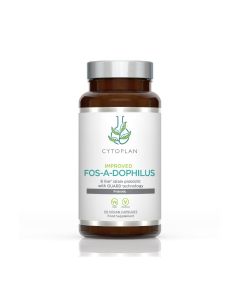Managing stress this festive season: what nutrients can help?
The festive season is upon us and Christmas is just around the corner! For some it can be a magical time, filled with joy and fun, but for others, a time of heightened stress. The presents, decorations, parties, music, food and family traditions can all add a touch of magic, but at the same time, the additional pressures on finances, endless to do lists and managing the expectations of family and friends may leave you feeling a little un-jolly to say the least!
Whichever camp you are in, there are some practical steps you can take to address some of the key festive stressors, as well as some key nutrients that can help you to have a calm Christmas.
How to avoid festive anxiety
Key festive stressors and tips to tackle them:
- There’s just so much to do! – Planning is the key here. Write lists for cards to send, gifts to buy or people you want to personally connect with, along with the jobs you know you need to do – this will prevent panic as Christmas looms closer. And don’t forget to delegate some of the tasks where you can.
- …and so much going on! While the festive period is a great time to be social, you can often find yourself getting sucked into parties and events when you would rather decline the invitation. One of the smallest words in the English language, yet one of the hardest words to say is “no”! It’s lovely to be included in invites, but remember it is perfectly Ok to politely decline.
- The ever-mounting costs - Set a budget for how much you are willing and able to spend for items such as gifts, social activities and entertaining at home and do your absolute best to stick to it. Why not do a “secret Santa” within your family or friends where each adult buys and receives one gift? Or ask your Christmas dinner guests to bring a dish so save on both cost and workload.
Be mindful of overindulging:
Yes, Christmas is the time to “eat, drink and be merry” – but overindulging in rich foods and alcohol can have longer-term consequences for your health such as weight gain, disturbance to your digestive health, increased inflammation and overindulging in alcohol can affect your sleep and mental health.
Here are some tips to help prevent overindulgence at Christmas:
- Fill half of your Christmas plate with colourful veggies – not only will this give you a great source of fibre, vitamins, minerals and antioxidants, it could help you to feel fuller for longer and prevent you reaching for sweet treats.
- Practice portion control – by all means sample all your favourite Christmas treats, but try to stick to smaller portions to avoid overindulging.
- Eat mindfully – eating whilst distracted (through the King’s speech for example!) or on the run can often lead you to miss the cues that you are full – so slow down, pay attention to your food, chew thoroughly and stop as soon as you are full.
- Every time you see food you make an unconscious decision about whether to eat it – so keep those unhealthy treats out of sight
- Take a brisk walk – while exercise might be the last thing you feel like with a tummy full of Christmas pudding it can help to improve your mood and may help you to make healthier food choices
- Stay hydrated – dehydration can negatively affect mood, brain health and energy levels. Alcohol has a dehydrating effect in the body so top up your hydration by drinking plenty of water or herbal teas.
While you don’t need to deny yourself the many wonderful Christmas foods, and one or two days of indulgence are unlikely to be detrimental to your health – it’s going to be beneficial to get back on track with healthy food choices shortly after the big day.
Supplements for stress: key nutrients that can help you feel calm:
Ashwagandha - or Withania somnifera is an Ayurvedic herb, traditionally used to reduce stress and enhance wellbeing. Its main use currently, within Nutritional Therapy, is as an adaptogen, which means that it can support the body to adapt to stress and may be particularly supportive over the festive period.
L-Theanine – this amino acid, found in tea leaves has demonstrated a wide range of health benefits, with its ability to promote calm and relaxation widely evidenced. Theanine can increase alpha brainwaves and the neurotransmitter GABA, which can have a calming, but not a sedative effect so you can use L-Theanine in the day, or to support sleep at night.
Magnesium – this mineral, which is commonly deficient in the western diet is required to relax both body and mind and plays a major role in the normal functioning of the nervous system. It also helps to reduce feelings of tiredness and fatigue and supports psychological function. It is often referred to as ‘nature’s tranquiliser’ and is also depleted during periods of stress.
B Complex Vitamins – these vitamins contribute to normal psychological and nervous system function, as well as the reduction of tiredness and fatigue. During periods of stress, our requirement for B vitamins increases and as they are water soluble (so are not stored in the body), they must be continually replaced.
Probiotics – as we’ve discussed, over-indulgence in rich, sugary foods and alcohol can certainly take its toll our digestive health, as well as disturb the balance of the gut microbiome. The link between our gut microbiome and emotional wellbeing is becoming ever more apparent, and a multi-strain probiotic may help to support healthy mood balance over the festive period.






